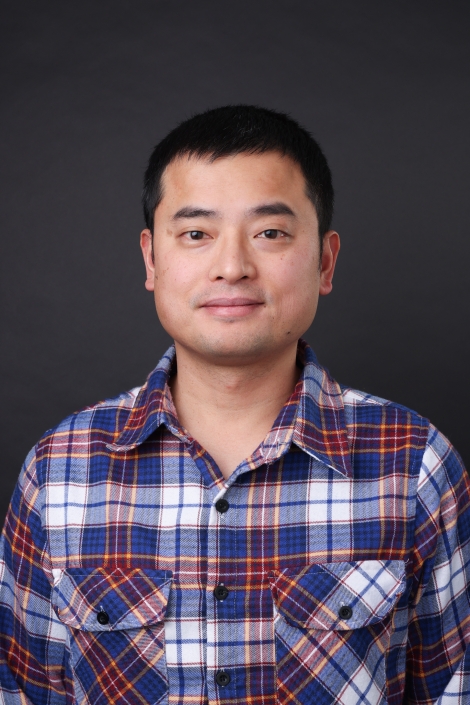Lab Website:
Please visit Dr. Daniel Chi-Wei Chen's lab website at danielcwchen.weebly.com.
Education:
- Ph.D. in Biopharmaceutical Sciences, National Yang Ming Chiao Tung University, Taiwan
- M.S. in Molecular Biology, National Chung Hsing University, Taiwan
- B.S. in Life Science, National Dong Hwa University, Taiwan
Professional Experience:
- Assistant Professor, Department of Biology, Appalachian State University, NC (2024-Present)
- Assistant Professor, School of Science and Medicine, Lake Superior State University, MI (2023-2024)
- Assistant Professor, Department of Life Science, National Dong Hwa University, Taiwan (2021-2023)
- Postdoctoral Scholar, University of Pittsburgh & Penn State College of Medicine, PA (2018-2021)
- Postdoctoral Fellow, The George Washington University, DC (2016-2018)
Areas of Interest:
- Cancer Biology
- Drug Discovery and Pharmaceutical Sciences
- Molecular Mechanisms of DNA Damage and Repair
- Cell Metabolism and Therapeutic Resistance
Research Statement:
My research combines molecular biology, biochemistry, and pharmaceutical sciences to develop targeted cancer therapies by investigating key drivers of cancer progression, such as DNA replication, metabolic reprogramming, DNA damage response, and alternative splicing. My laboratory aims to uncover the molecular mechanisms behind drug resistance and identify innovative therapeutic targets to enhance cancer treatment, particularly for ovarian cancer.
Our current projects explore how mRNA alternative splicing responds to DNA damage, with the goal of improving anticancer therapies through rational drug combinations. We are eager to expand this work into gene therapy and drug discovery to address broader cancer treatment contexts. The long-term goal is to translate these findings into clinical solutions, fostering collaborations that bridge basic research with therapeutic innovation. By integrating hands-on research opportunities and educational initiatives, my laboratory provides an exciting environment for students to engage in groundbreaking cancer research and contribute to advancing the field.
Selected Publications:
- Tseng, C. C.†, Ku, M. H.†, Wu, Y. W.†, Huang, W. L.†, Wu, W. M.†, Pai, C. H.†, and Chen, C. W.‡ (2024) Therapeutic Options Targeting Ataxia-Telangiectasia Mutated (ATM) Mediated DNA Damage Response, Macropinocytosis, and Adaptive Immunity in Ovarian Cancer. Anticancer Research, 44(4):1353-1364. DOI: 10.21873/anticanres.16931
- Liu, B.R., Chen, C. W., Huang, Y. W., and Lee, H. J. (2023) Cell-Penetrating Peptides for Use in Development of Transgenic Plants. Molecules, 28, 3367. https://doi.org/10.3390/molecules28083367
- Huang, Z.*, Chen, C. W.*, Buj, R., Tangudu, N. K., Fang, R. S., Leon, K. E., Dahl, E. S., Varner, E. L., von Krusenstiern, E., Cole, A. R., Snyder, N. W., and Aird, K. M. (2023) ATM inhibition drives metabolic adaptation via induction of macropinocytosis, J Cell Biol 222. (*Co-first author) DOI: 10.1083/jcb.202007026
- Chen, C. W§., Buj, R., Dahl, E. S., Leon, K. E., and Aird, K. M.§ (2020) ATM inhibition synergizes with fenofibrate in high grade serous ovarian cancer cells, Heliyon 6, e05097. DOI: 10.1016/j.heliyon.2020.e05097
- Chen, C. W.*, Li, Y.*, Hu, S., Zhou, W., Meng, Y., Li, Z., Zhang, Y., Sun, J., Bo, Z., DePamphilis, M. L., Yen, Y., Han, Z., and Zhu, W. (2019) DHS (trans-4,4'-dihydroxystilbene) suppresses DNA replication and tumor growth by inhibiting RRM2 (ribonucleotide reductase regulatory subunit M2), Oncogene 38, 2364-2379. DOI: 10.1038/s41388-018-0584-6
- Meng, Y.*, Chen, C. W.*, Yung, M. M. H., Sun, W., Sun, J., Li, Z., Li, J., Li, Z., Zhou, W., Liu, S. S., Cheung, A. N. Y., Ngan, H. Y. S., Braisted, J. C., Kai, Y., Peng, W., Tzatsos, A., Li, Y., Dai, Z., Zheng, W., Chan, D. W., and Zhu, W. (2018) DUOXA1-mediated ROS production promotes cisplatin resistance by activating ATR-Chk1 pathway in ovarian cancer, Cancer Lett 428, 104-116. (*Co-first author) DOI: 10.1016/j.canlet.2018.04.029
- Chen, C. W., Wu, M. H., Chen, Y. F., Yen, T. Y., Lin, Y. W., Chao, S. H., Tala, S., Tsai, T. H., Su, T. L., and Lee, T. C. (2016) A Potent Derivative of Indolizino[6,7-b]Indole for Treatment of Human Non-Small Cell Lung Cancer Cells, Neoplasia 18, 199-212. DOI: 10.1016/j.canlet.2015.10.016
† Undergraduate author, ‡ Corresponding author; *Co-first author; § Co-corresponding author
For a more complete list of publications and access to PDFs: My Bibliography and Google Scholar

Title: Assistant Professor
Department: Department of Biology
Email address: Email me
Phone: (828) 262-2677